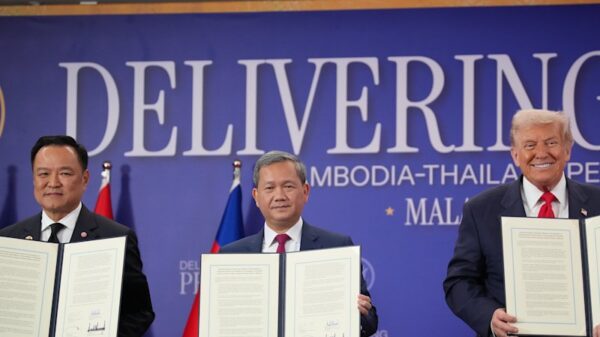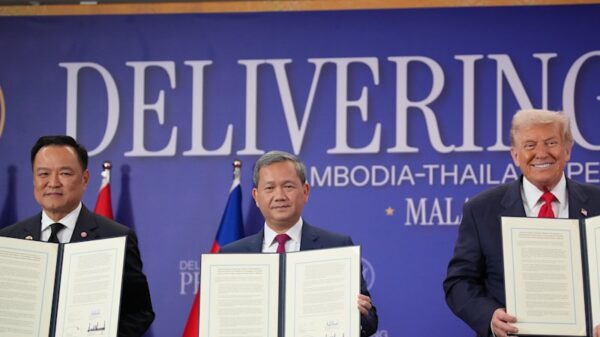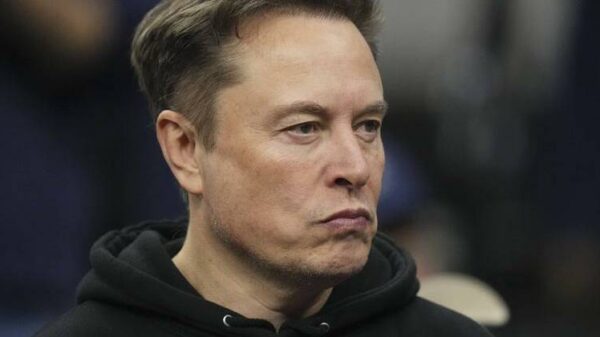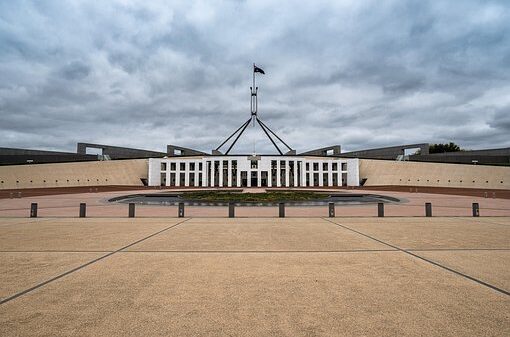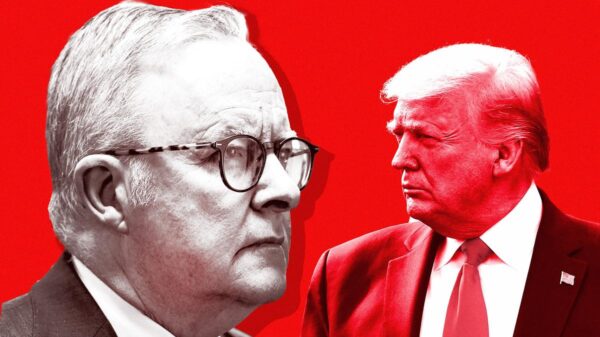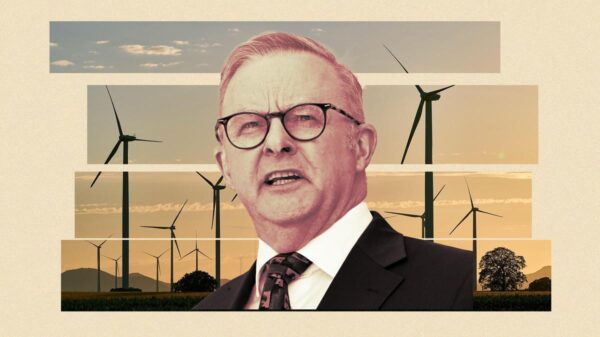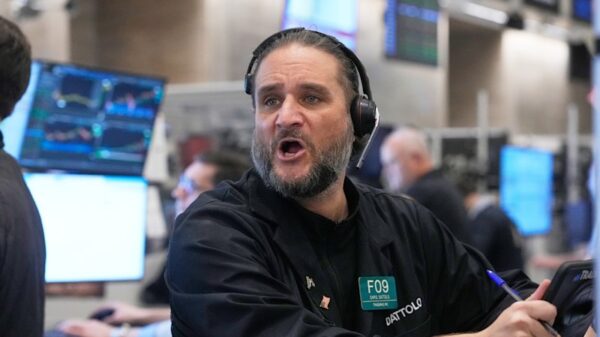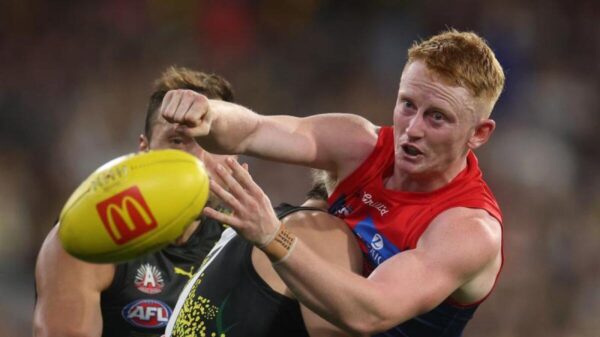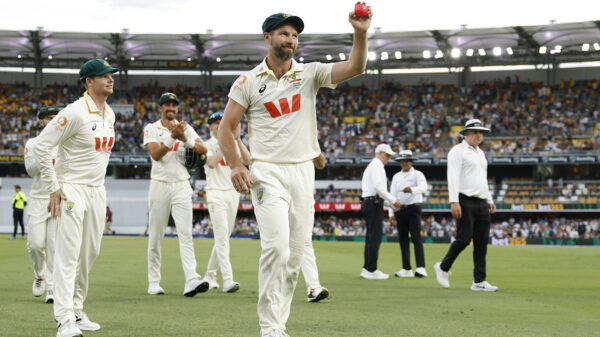Ukraine is actively pursuing security guarantees to shield itself from ongoing Russian aggression. Recent summits involving Ukrainian President Volodymyr Zelenskyy, Russian President Vladimir Putin, and U.S. President Donald Trump have failed to clarify the path forward in the conflict, which has significant implications for regional stability.
Discussions in Anchorage on August 15, 2025, yielded little beyond vague commitments. Trump’s subsequent meeting with Zelenskyy and European leaders sought a different approach: a peace framework that includes robust security assurances from Western powers in exchange for an end to hostilities. This strategy aims to strengthen Ukraine’s defensive capabilities while navigating the complexities of international diplomacy.
Despite these efforts, Putin appears to be leveraging the situation to consolidate Russian control over contested territories. Confident in his military position, he seems to be using the peace initiative to gain time, expand territorial claims, and create rifts between the U.S. and Europe. The European leaders are keenly aware of this tactic and hope to persuade Trump to align with their efforts to support Ukraine’s defense.
The gap between Ukrainian and Russian perspectives on peace remains significant. Observers of Russian politics express skepticism that any proposed security guarantees could effectively facilitate a resolution. If such guarantees are perceived as too weak, they would offer insufficient deterrence against future Russian actions. Conversely, if they are overly stringent, Moscow is unlikely to accept them.
In discussions on August 16, Trump indicated his willingness to contribute to security measures, provided they do not involve NATO. White House special envoy Steve Witkoff later claimed that Putin had agreed to some form of security guarantees for Ukraine. At a follow-up meeting on August 18, Trump, Zelenskyy, and European leaders acknowledged the necessity of assurances to protect Ukraine from further aggression.
European leaders are taking the discussion of security guarantees seriously. Camille Grand, a former NATO assistant secretary general, has proposed deploying a contingent of 15,000 to 20,000 European troops in Ukraine after a peace agreement. On August 19, U.S. General Dan Caine met with European military leaders, and the following day, NATO defense ministers held a virtual meeting to explore this idea.
Despite these diplomatic efforts, the acceptance of security guarantees by Russia remains uncertain. Putin has consistently articulated his opposition to NATO’s presence in Ukraine. Since December 2021, he has demanded that NATO withdraw forces from Eastern European nations, including the Baltic states and Poland. Given this stance, it is unlikely that Russia would shift its position in any forthcoming peace negotiations.
The historical context of security assurances complicates the current situation. The 1994 Budapest Memorandum provided Ukraine with security guarantees in exchange for relinquishing its nuclear arsenal. However, these assurances failed to prevent Russia’s annexation of Crimea in 2014, leading to limited Western responses and economic sanctions.
Ukraine’s NATO membership appears increasingly off the table, prompting discussions of alternative security arrangements. The notion of a “coalition of the willing” has emerged, aiming to offer Ukraine a form of protection akin to NATO’s Article 5, which asserts that an attack on one member is an attack on all. However, the ambiguity surrounding Article 5’s implementation raises doubts about the effectiveness of such a coalition.
During the Cold War, the U.S. positioned over 300,000 troops in Europe to provide a credible deterrent against Soviet aggression. This presence enabled political leaders to reconsider military escalations. However, the post-Cold War landscape saw a significant reduction in U.S. troop levels, decreasing to approximately 65,000 by 2010.
The expansion of NATO has raised questions about the credibility of Article 5 assurances. While Eastern European countries joined NATO, their limited military capacities have led to concerns about their ability to withstand a potential Russian assault. A 2016 RAND study suggested that Russia could overrun the Baltic states in less than three days. In response, NATO established a forward presence in the Baltic region, although the troop levels remain limited.
As the situation evolves, the push for security guarantees may serve dual purposes. It aims to prevent Ukraine from being abandoned by its allies while also shifting the responsibility for the ongoing conflict back onto Putin. Moreover, European leaders are focused not only on Ukraine’s defense but also on enhancing NATO’s military capabilities in Central Europe.
In a world where perceptions of U.S. reliability as an ally are changing, advocating for security guarantees for Ukraine represents a broader strategy to reinforce European security in the aftermath of the conflict. The outcome of these discussions and their implications for both Ukraine and regional stability remain to be seen.







